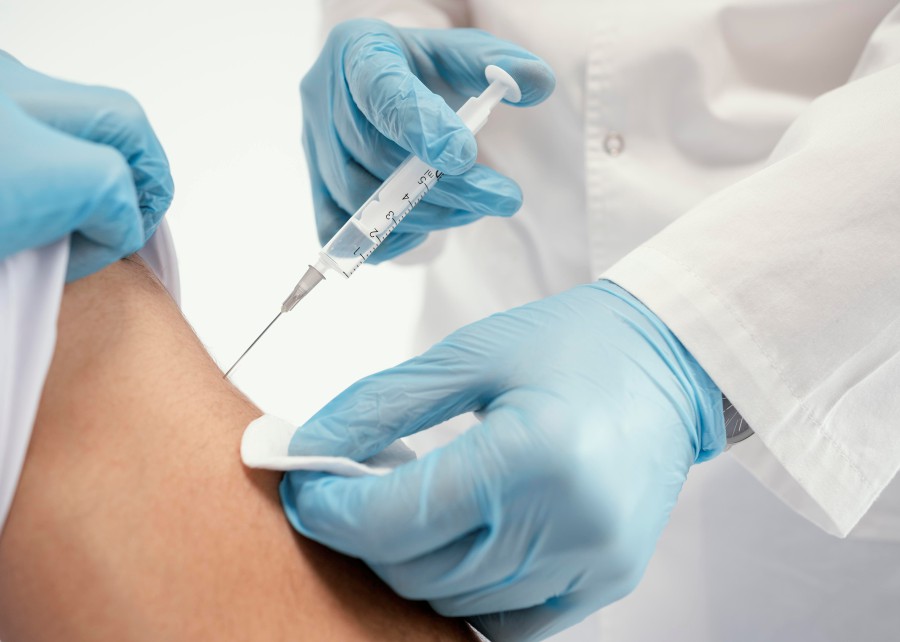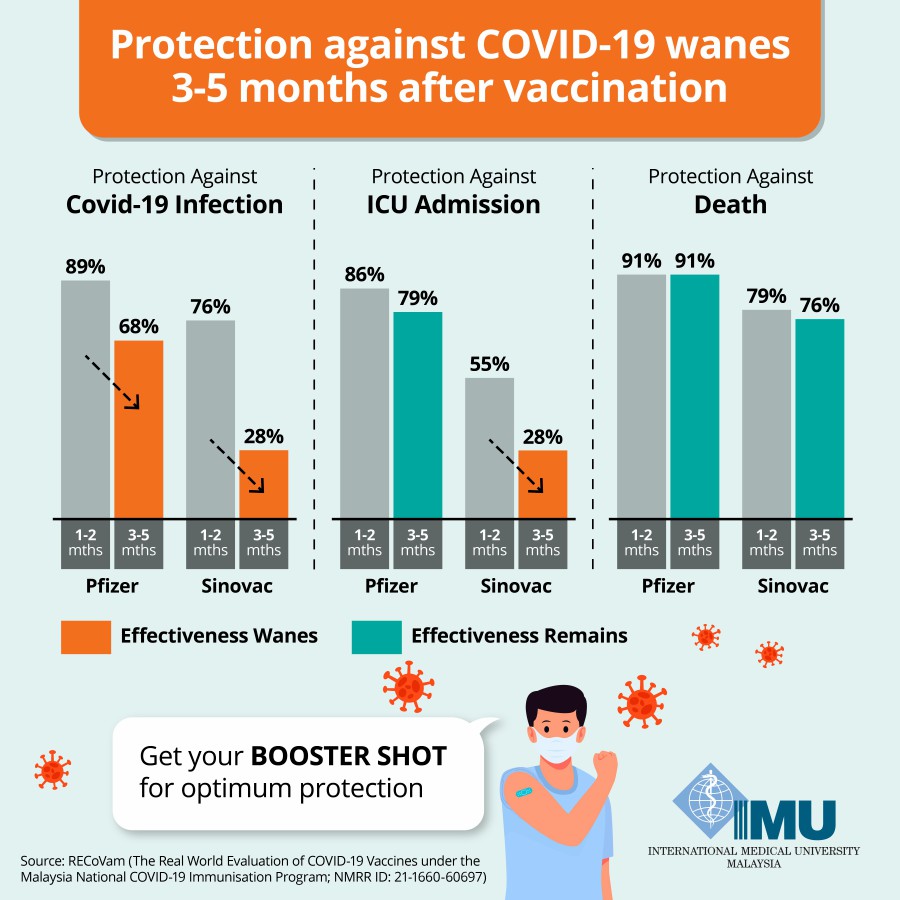MALAYSIANS are now heading back to vaccination centres nationwide to get their Covid-19 booster shots as the fight against the virus continues.
Initially, it was thought that having two shots of the vaccine was enough. But research continues and with new data, we now know that the protective effect (or neutralising antibody levels) for all vaccines tend to drop with time.
That is why the government and other authorities around the world are now proposing booster shots, explains International Medical University (IMU) infectious disease consultant and head, division of medicine, school of medicine, Professor Dr James Koh.
Dr Koh explains that this should not come as a surprise as most vaccines have boosters. For instance, the hepatitis B vaccine has three doses – the second and third ones being boosters, anti-tetanus jabs should be boosted once every ten years and the pneumococcal vaccine that protects against pneumonia, once every five years. Boosters are not unique to Covid-19 vaccines.

The need for boosters became urgent as the majority of our population, especially in the earlier phases, had taken Sinovac as their primary vaccine.
Local statistics from the the Real-World Evaluation of Covid-19 Vaccines Under the Malaysia National Covid-19 Immunisation Programme (RECoVaM), show that Sinovac's protection against Covid-19 infection falls from 76 per cent in the first two months of being fully vaccinated to just 28 per cent in months three to five. International studies corroborate this.
"At three months, research shows that the neutralising antibody level in Sinovac was less than 50 per cent and at six months it was almost undetectable," says Dr Koh.
For the Pfizer and AstraZeneca vaccines, lowered efficacy starts to show at six months. It is important therefore to get the booster shot which essentially reawakens our immune system to start producing antibodies.
"This booster shot is not the endgame. There will be a next booster and a next – we don't know how many but we definitely know this will not be the last."

MIX AND MATCH
The safety of mixing vaccines has also brought about hesitancy. In early Nov 2021, the Center for Disease Control and Prevention (CDC) gave the green light to mix and match different vaccines for boosters.
Evidence from countries that have been rolling out a mix-and-match system have shown good results. Singapore's studies have shown a 72 per cent reduction in infection risk when mixing the Pfizer primary vaccine with a Moderna booster as compared to 62 per cent for those who used Pfizer for their first, second and booster shots.
Data from the Chilean Ministry of Health shows that the mix of a Sinovac primary vaccine with a booster of Pfizer resulted in a 95 per cent effectiveness rate against the virus. This is a big jump compared to using three doses of Sinovac, which shows a 74 per cent effectiveness.
Dr Koh says everyone should take their boosters no matter the mix as it is more dangerous to not take a booster.
"It is better to get any booster than to have none at all. With Sinovac, it will just mean that you will probably need another booster sooner than later," he explains.
Are there those who should not take the booster? No, he says as anyone who was cleared to take the first two doses, is able to take the booster.
For those with diminished immunity such as those living with HIV/AIDS, those who have had organ transplants or cancer patients, booster shots may actually be a fourth shot.
Some might have had three doses in the beginning in order to stimulate their immune systems to produce antibodies.
For them, the booster shot would actually be the fourth jab that they get.
EMERGING CHANGE
The landscape continues to change with new variants such as the Omicron emerging.
Dr Koh says there's still much to be known about the new strain. Preliminary findings suggests the Omicron variant is five times more transmissible than the original virus, while the Delta was twice as transmissible as the original.
"That means with the Delta, one infected person could infect two persons, while with the Omicron, one infected person can infect five persons."
Omicron is also three times higher in terms of reinfection – that means one can get it again and again.
However, so far, data shows that symptoms are mild among adults while children are experiencing heavier symptoms.
This could be because young children below 12 are not vaccinated yet, explains Dr Koh.
The silver lining is that the death rate hasn't gone up yet although it will only be closer to the end of the year before there is enough data to make any conclusions.
Some promising news is that Pfizer and BioNTech have just released a statement that three doses of the Pfizer vaccine still provides protection against Omicron in terms of developing severe disease.
"Vaccines will continue to be updated. Even if you do not take a booster now, you will still need to have one in the future. In the meantime, the current boosters are still effective."

Get your booster shot aftercare with Shopee Voucher Code to enjoy extra discounts.




